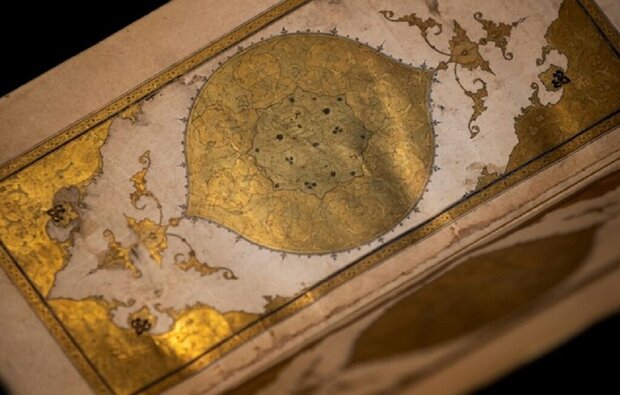According to the reports, the gold-leafed volume worth around $1.1 million, which Iranian authorities are trying to return home, was found to be missing from the collection of an Iranian antiques dealer after his death in Germany in 2007.
Dutch art detective Arthur Brand, dubbed the “Indiana Jones of the Art World” for tracing a series of lost works, tracked down the tome via the murky stolen arts underworld.
“This is a hugely important find for me, because this is such an important book,” Brand said as he showed AFP the recovered book at an Amsterdam apartment, according to the report.
The theft of the manuscript, which dates from 1462 to 1463, was discovered by the family of book dealer Djafar Ghazy after he died in an old people’s home in Munich in 2007.
While going through Ghazy’s computer, they realized the reclusive pensioner had in fact collected hundreds of ancient manuscripts — but that they were all gone.
In 2011 German police recovered 174 of them raiding the home of another Iranian pensioner who had befriended Ghazy.
“But the most important piece, one of the earliest and most accurate copies of the famous ‘Divan of Hafez,’ was still missing,” said Brand.
German police announced a 50,000-euro reward and issued a flyer describing the book in 2016 but there was still no trace of it, until late 2018.
Iran had already shown an interest in the case, saying it would take “all legal means” to get back the manuscripts that were found in 2011, after Germany gave two back but decided most of the rest were legally owned by the collector, German news reports said.
Meanwhile, Brand said he will travel to Munich next Wednesday to return the Divan to German police.
Experts said this edition could be of great historical and literary value for scholars and admirers of Hafez, one of the best known mystical poets in the world and praised by American essayist Ralph Waldo Emerson as the “Prince of Persian poets.”
The recovered book is “one of a handful still in existence,” Dominic Parviz Brookshaw, associate professor of Persian literature at Oxford University, told AFP. “It’s an extremely early edition — although not the earliest — which would make it very rare and valuable."
MNA/IRN83638065


























Your Comment